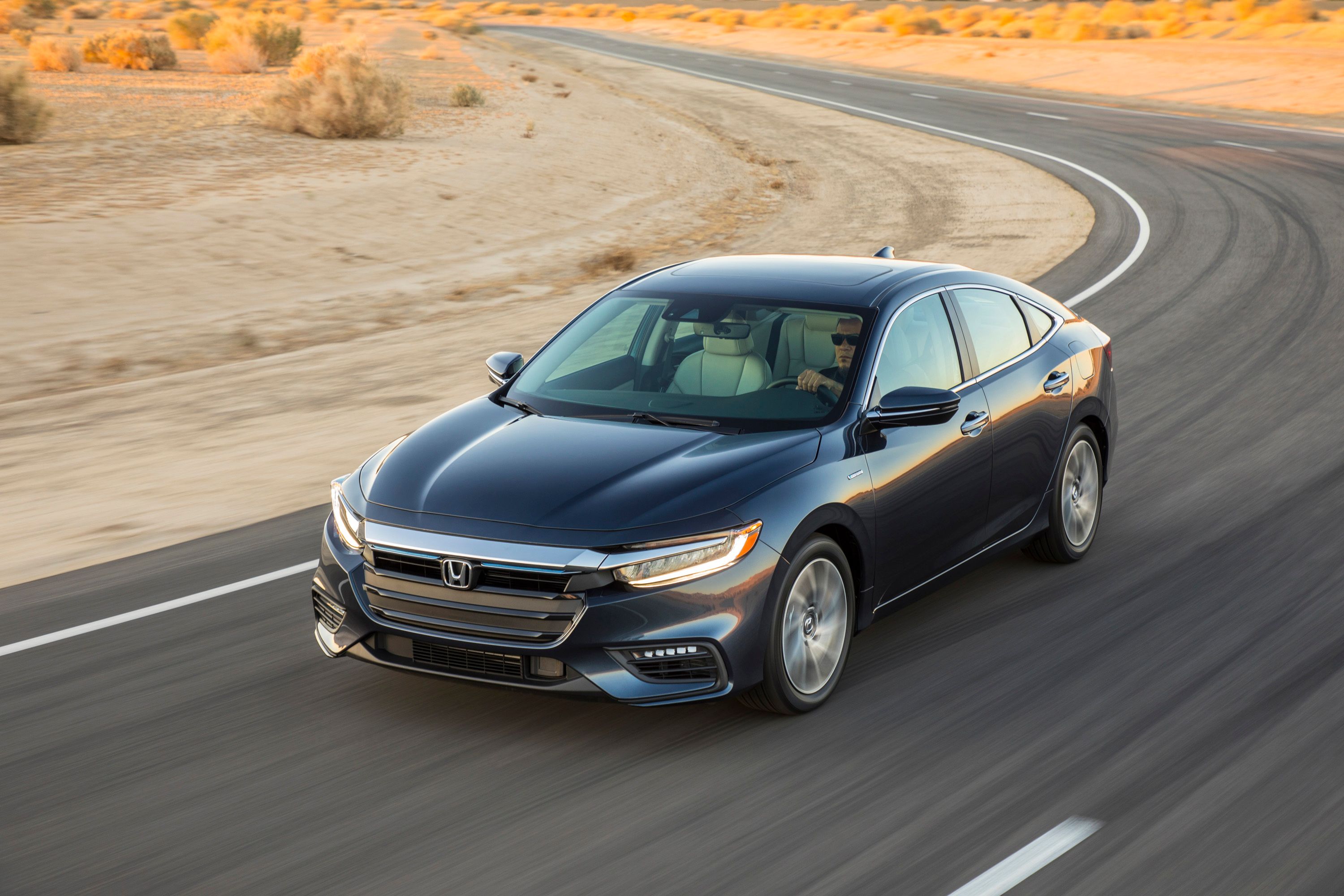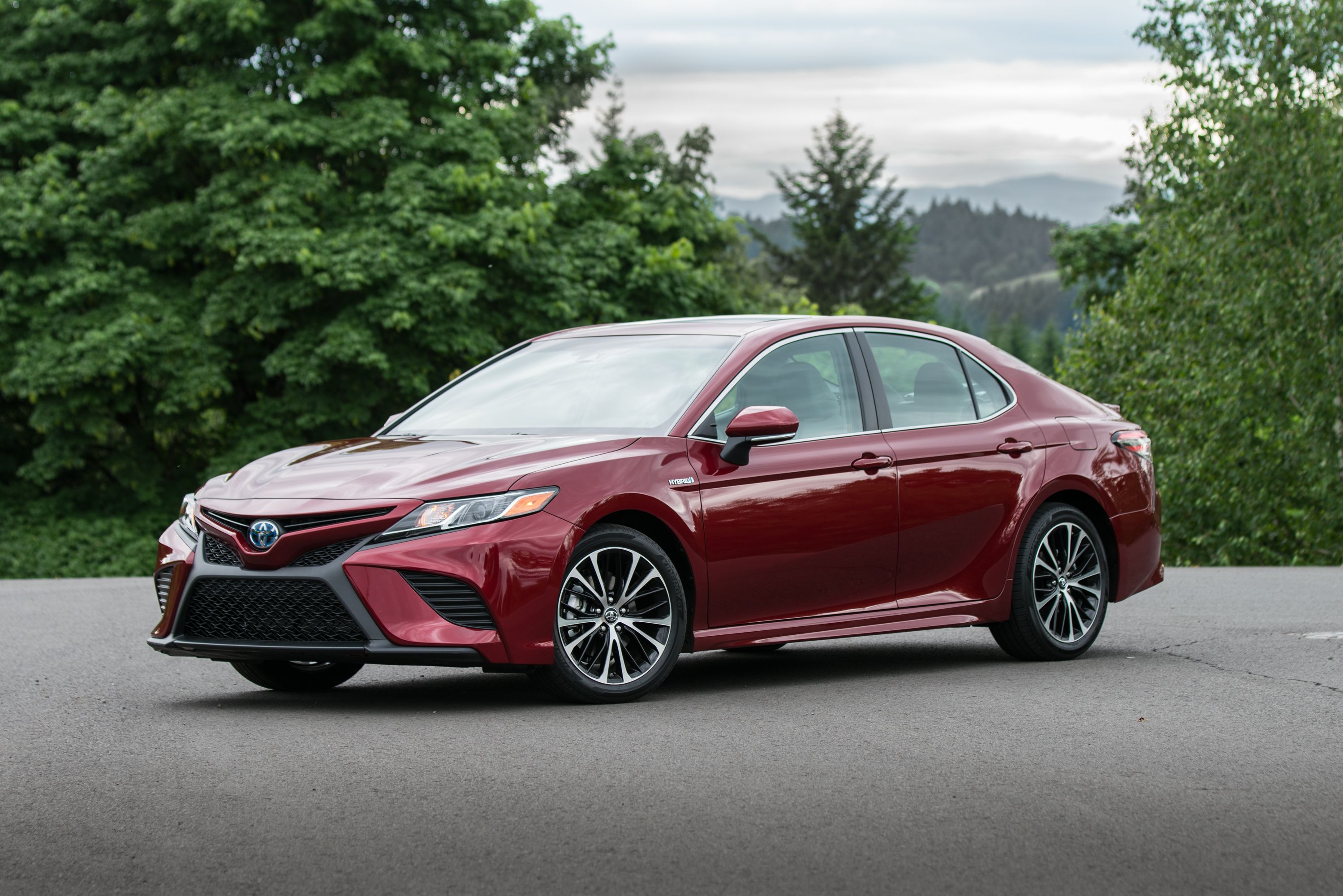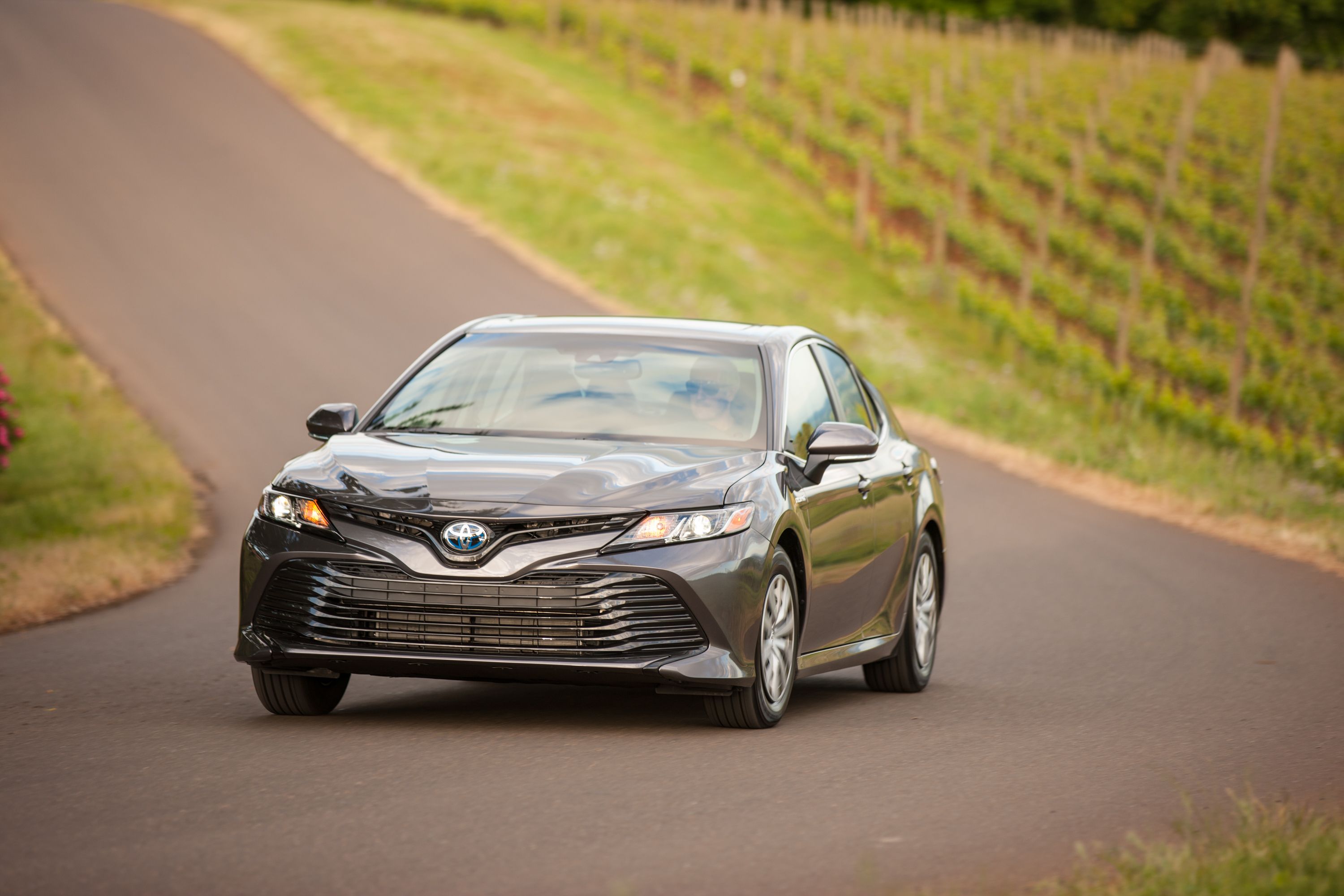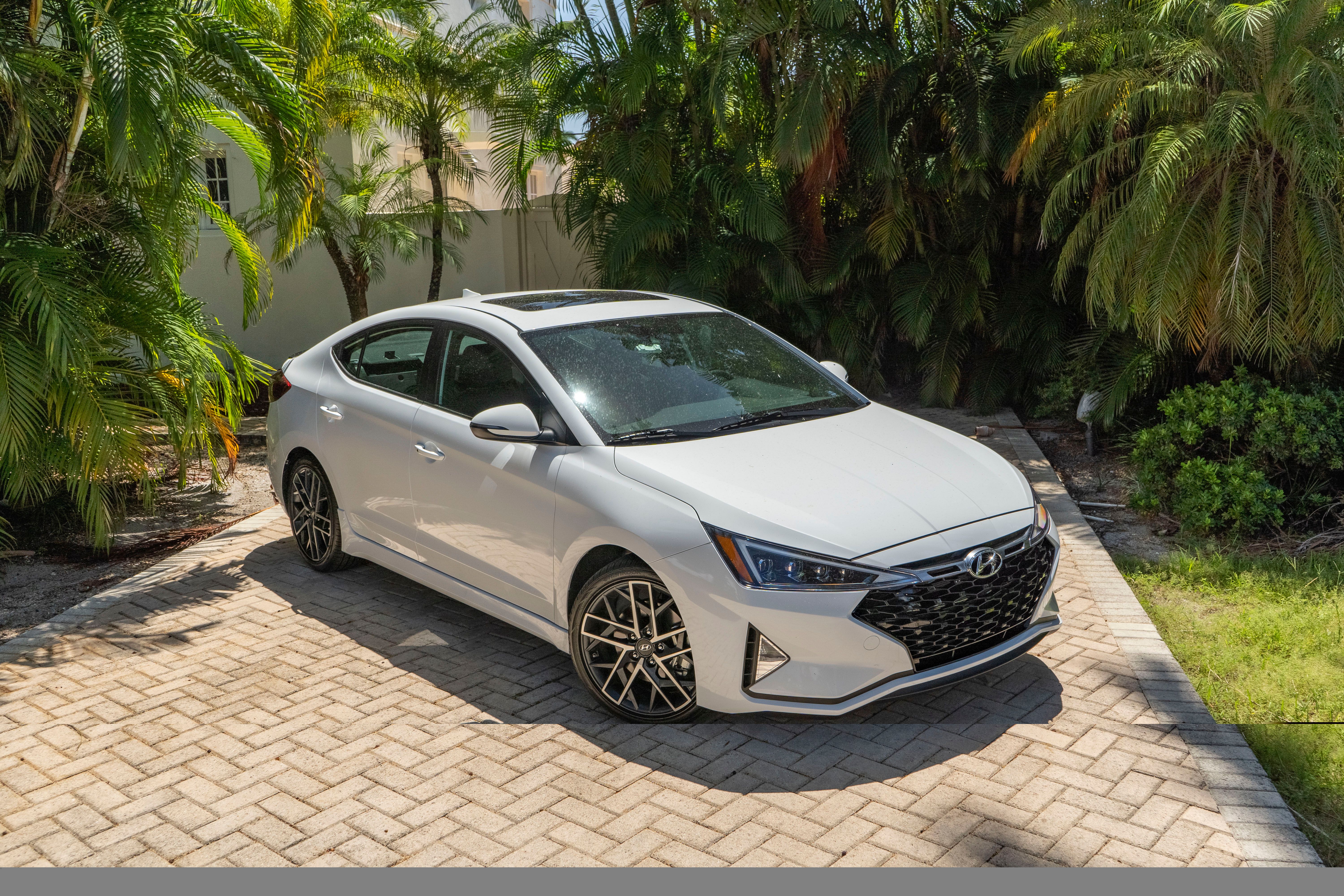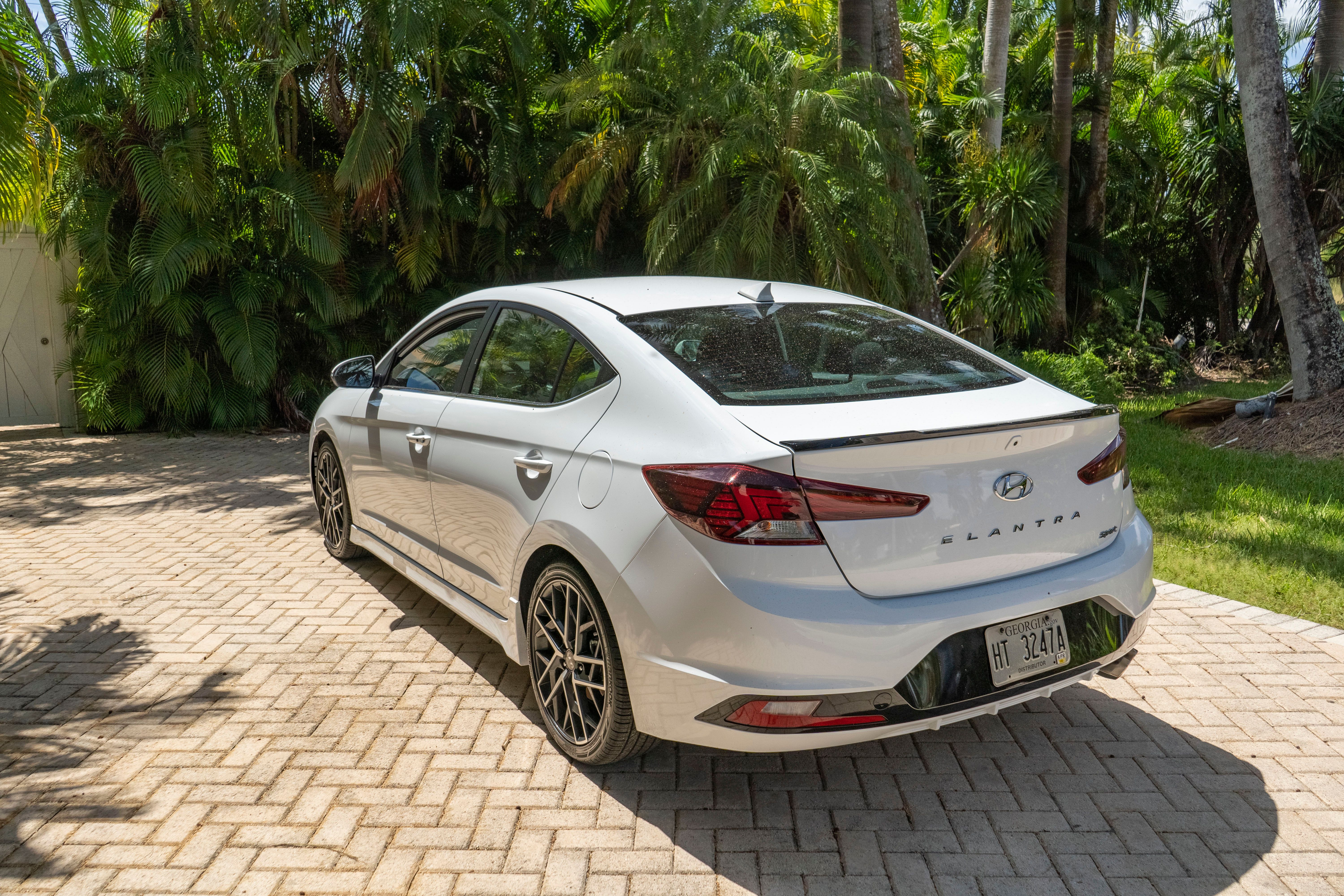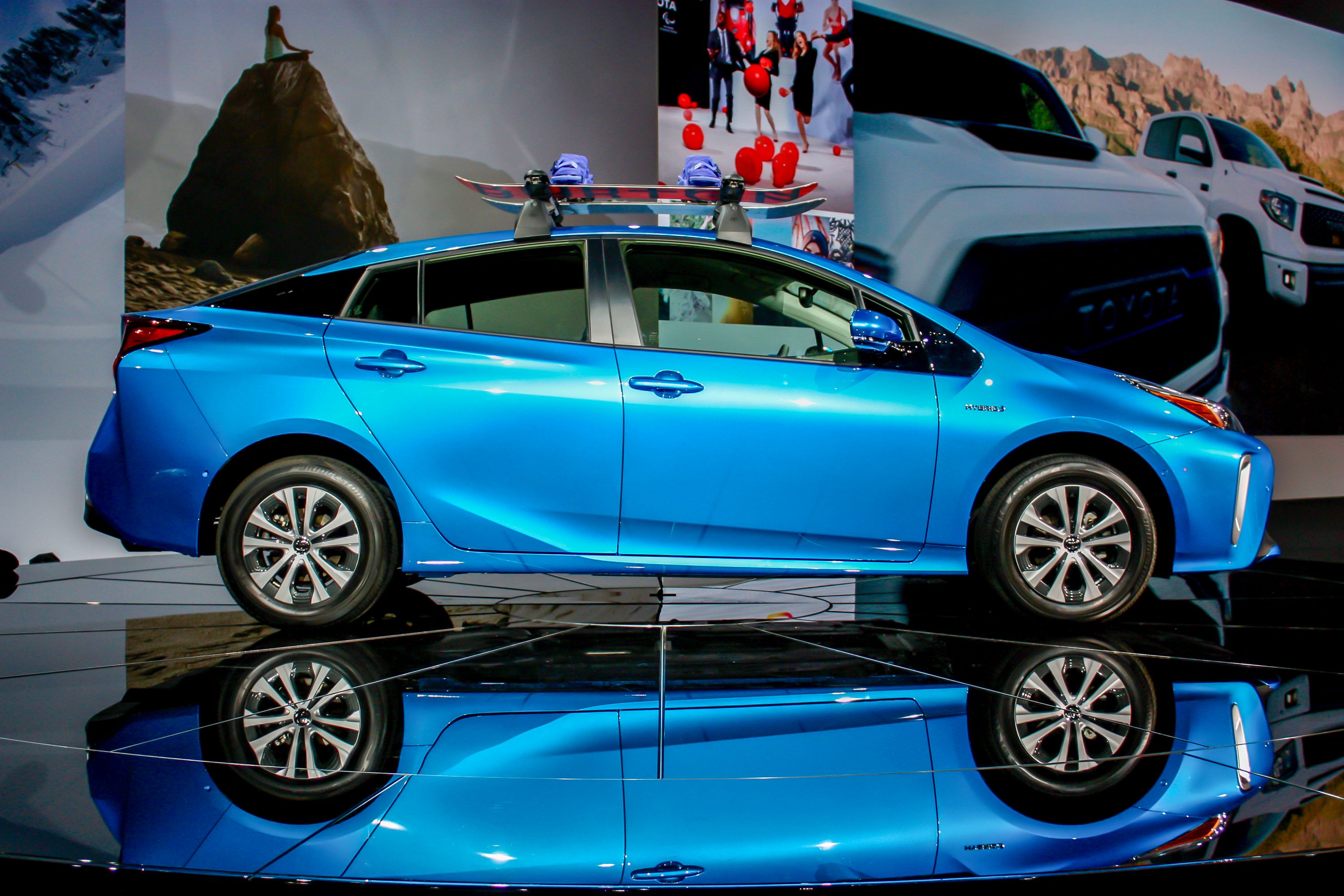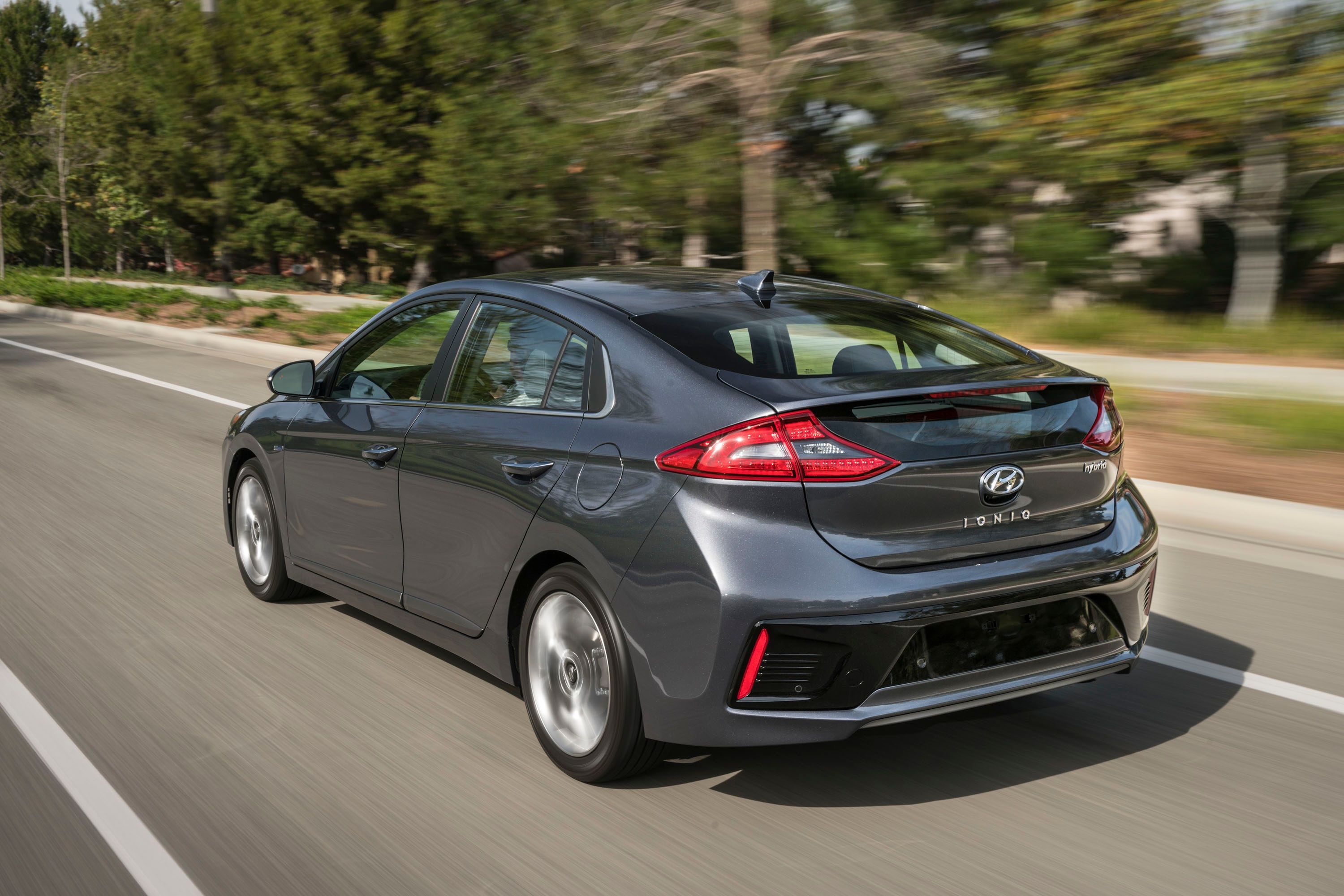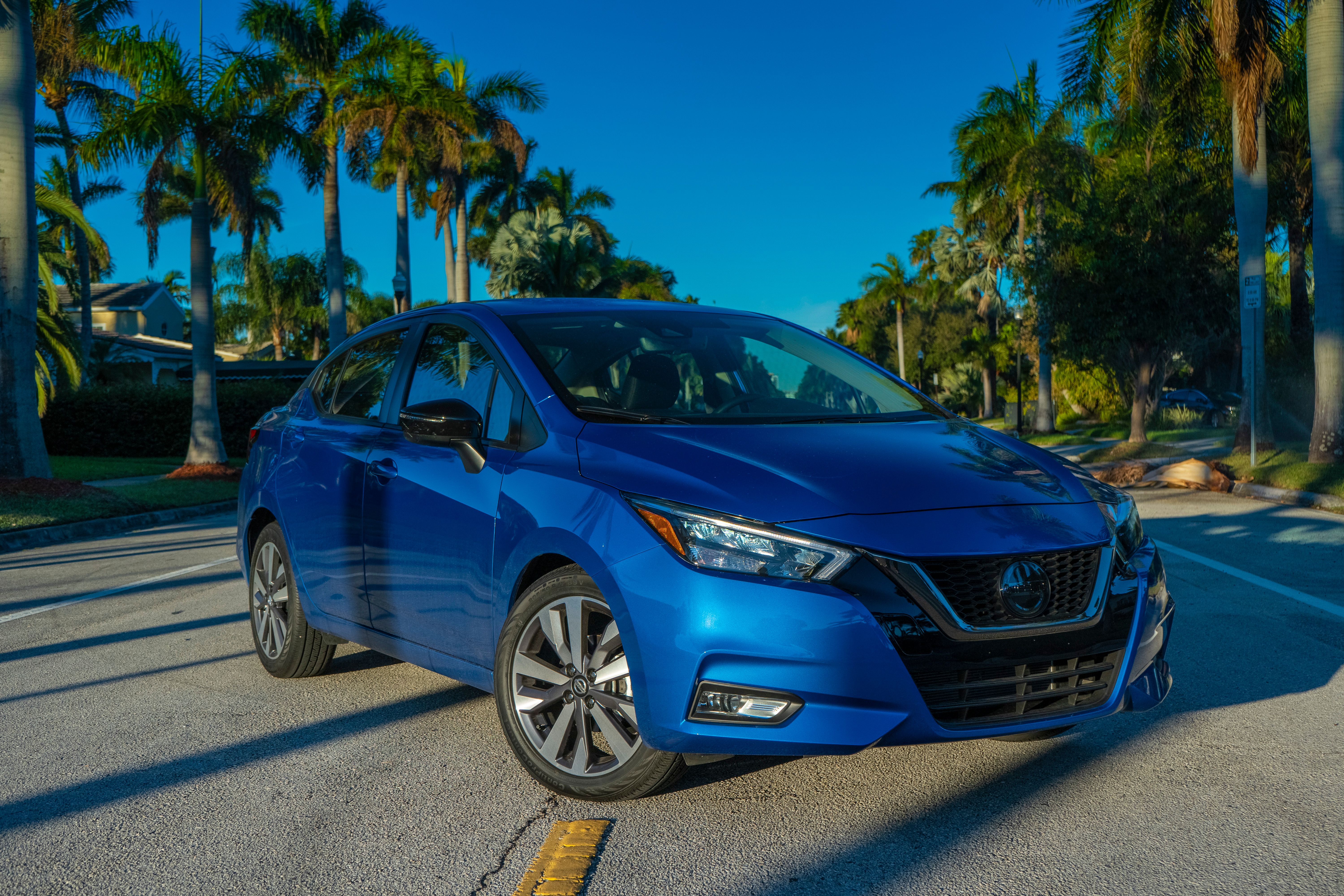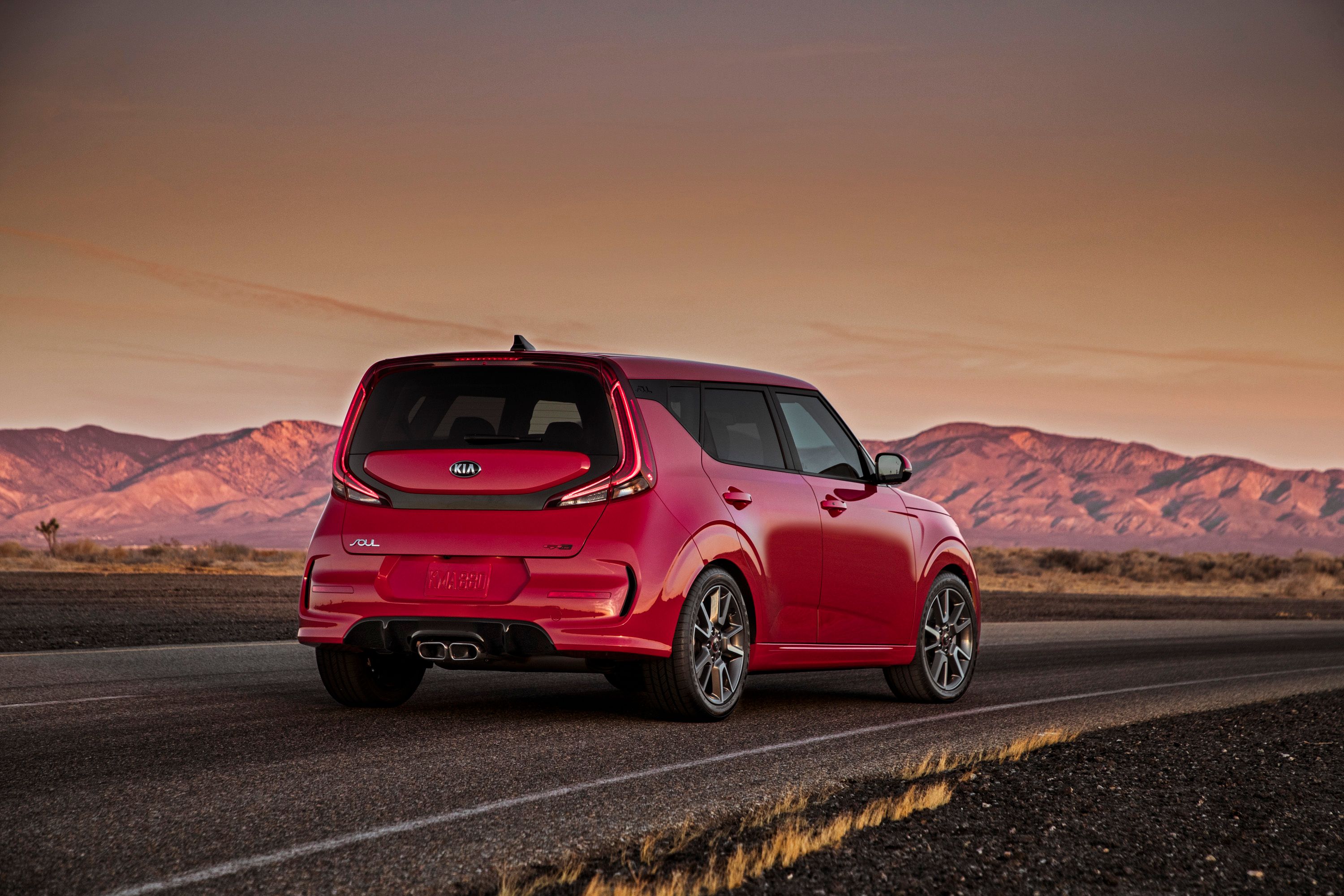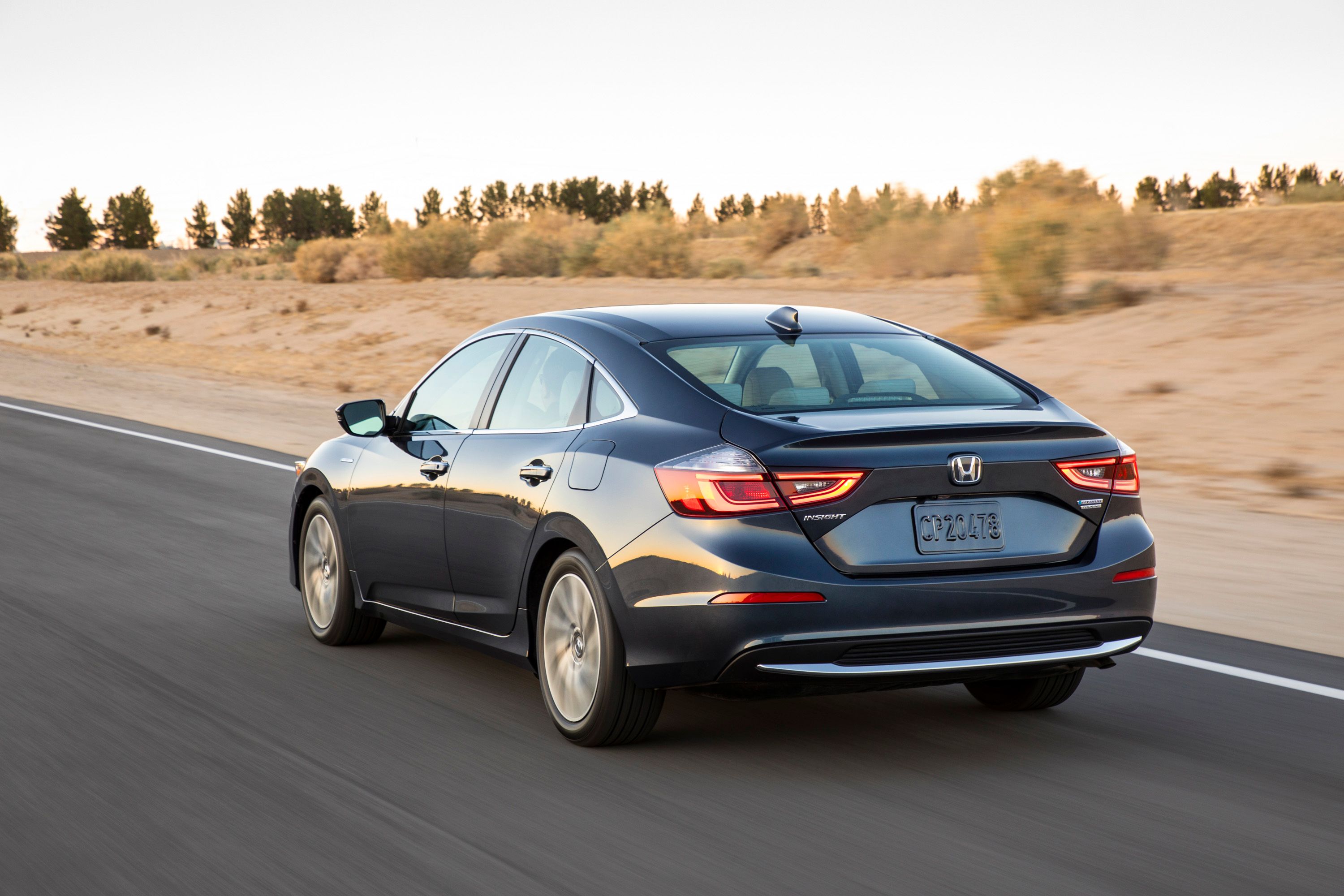Looking to join Uber? Then you'll need a car that ticks a few boxes in order to maximize your profits. Usually, there are three main factors that matter most when picking your next Uber car, and most drivers set them as priorities: reliability, costs, and safety.
Naturally, you'll want to stay away from repair shops for as long as possible and avoid costly repairs. What's most, the car's frugality is significant, too, for the obvious reasons, so don't be surprised that the list below is brimming with hybrids. On top of that, there's the safety aspect - you'll be driving a lot, both alone and with passengers, so your and their well being is important.
Toyota Camry Hybrid
The 2020 Toyota Camry Hybrid starts at $28,430. It is powered by a 2.5-liter four-cylinder gasoline engine of the Dynamic Force family of powerplants (176 horsepower, 163 pound-feet of torque) assisted by an electric motor (88 kilowatts/118 horsepower and 149 pound-feet of torque). Overall output sits at 208 horsepower.
On the frugality front, the 2020 Camry Hybrid returns 51 mph in the city and 53 mpg on the highway, according to EPA's measurements. What's more, the Hybrid is known for its smooth acceleration, quiet ride, and just like any Toyota out there, it is bound to impress in the long run when it comes to reliability. Comfort is also a plus, as is luggage space (15.1 cubic feet with the rear seats up).
Used alternative
If buying new isn't an option given your limited budget, fret not. You can get a 2014 Toyota Camry Hybrid SE for around $11,000 or even less, while a 2013 Camry Hybrid XLE can go for $9,000 or so.
Toyota Camry Hybrid drivetrain specifications
|
Type,Materials |
2.5-liter,4-cylinder |
|---|---|
|
Valvetrain |
Twin-cam16-valvewith VVT-iE (Intake)/VVT-I |
|
Displacement |
2,487cc |
|
BorexStroke |
3.44x4.07in. |
|
Compression Ratio |
14.0:1 |
|
Horsepower(SAENet) |
176 hp @5,700 rpm |
|
Torque |
163 lb-ft @5,200 rpm |
|
Electric motor |
PermanentMagnetSynchronousMotor |
|
Electric Motor Power Output |
88kW(118 hp) |
|
Torque |
202Nm (149lb.-ft.) |
Read our full review on the Toyota Camry Hybrid
Hyundai Elantra
Although it's not available with a hybrid powertrain, the 2020 Elantra starts at $19,150. The base SE model makes do with a 2.0-liter, four-cylinder gasoline engine good for 147 horsepower and 132 pound-feet of torque. These are decent figures, as is the EPA-estimated 35 mpg combined rating (31 mpg city, 41 mpg highway).
Hyundai also sells an Eco trim for the 2020 Elantra, powered by the 128-horsepower 1.4-liter turbo GDI gasoline unit mated to a seven-speed dual-clutch gearbox. This variant is rated at 36 mpg combined (33 mpg city, 41 mpg highway), but it's also a tad more expensive, starting at $21,450.
Used alternative
The Elantra tends to show good reliability so the used market could be a solution if your budget is rather tight. In that sense, you can get a 2015 Elantra SE sedan for as low as $8,000, while a 2017 Elantra SE would set you back around $12,000.
Hyundai Elantra specifications
|
Type |
Nu 2.0 MPI Atkinson 4-cylinder, DOHC Dual Continuously Variable Valve Timing (D-CVVT) |
KAPPA 1.4 Turbo GDI 4-cylinder, DOHC |
|---|---|---|
|
Materials |
Aluminum block and head |
Aluminum block and head |
|
Bore & stroke (mm) |
81 X 97 |
71.6 x 84 |
|
Compression ratio |
12.5:1 |
10.0:1 |
|
Displacement |
2.0 liters / 1,999 cc |
1.4 liters / 1,353cc |
|
Horsepower |
147 @ 6,200 rpm |
128 @ 5500 |
|
Torque (lb-ft) |
132 @ 4,500 rpm |
156 @ 1400 3700 |
Read our full review on the Hyundai Elantra
Toyota Corolla
An entry-level 2020 Toyota Corolla will set you back $19,600. For that kind of money you're getting a sharp-looking car fitted with a 1.8-liter, four-cylinder gasoline engine good for 139 horsepower and 126 pound-feet of torque. The unit is paired to a CVT that sends power to the front wheels and according to EPA ratings, it returns 30 mpg city, 38 mpg highway, and 33 mpg combined.
The Corolla also offers a cargo volume of 13.1 cubic feet and judging by Toyota's reliability record, it should hold its value pretty well over time and you won't have to visit the repair shop too often.
Used alternative
Used Corollas usually sell for $9,000-$10,000 (2017 model year) or as low as $6,000-$7,000 (2010 model year).
Toyota Corolla specifications
|
Type, Materials |
2.0-Liter Dynamic Force 4-Cylinder DOHC 16-Valve D-4S Dual Injection with Dual VVT-i |
|---|---|
|
Valve train |
DOHC, four-valve/cylinder |
|
Displacement |
1987 cc |
|
Bore x Stroke |
3.17 x 3.84 in. |
|
Compression Ratio |
13.0:1 |
|
Horsepower (SAE Net) |
168 hp @ 6,600 rpm |
|
Torque |
151 lb-ft @ 4,800 rpm |
Read our full review on the Toyota Corolla
Toyota Prius
The Prius needs no introduction and it's a popular choice and one of the best cars you can have if you plan to join Uber. The 2020 Prius can be had as a traditional hybrid ($24,325) or as a plug-in hybrid ($27,900). It combines a 1.8-liter gasoline engine good for 96 horsepower and 105 pound-feet of torque and an e-motor (71 horsepower/53 kilowatts and 120 pound-feet). Overall system output is 121 horsepower.
Sure, it's no supercar, but the Prius really shines when it comes to frugality, safety and reliability. According to EPA ratings, the 2020 Prius L Eco returns as much as 58-53 mpg. It also comes fitted as standard with Toyota's Safety Sense P (TSS-P) bundle and offers up to 27.4 cubic feet of cargo space. As of 2020, it supports Apple CarPlay, a nice tech gimmick to have. On top of that, the ride quality is aimed primarily at comfort and the seats are spacious and nice to sit in.
Used alternative
If your budget is restrictive for the time being, know that used 2012 Toyota Prius models can be had for $8,000-$9,000, while a pre-owned 2016 Prius will set you back around $12,000-$13,000.
Toyota Prius specifications
|
Engine |
2ZR-FXE (Atkinson cycle) |
|---|---|
|
Type, Materials |
1.8-Liter 4-cylinder aluminum block and head, double overhead cam (DOHC) 16-valve VVT-i |
|
Valvetrain |
4-valve/cylinder with VVT-i |
|
Displacement |
1,797 cc |
|
Bore xStroke |
3.17 x 3.48 in. |
|
Compression Ratio |
13.0:1 |
|
Horsepower (SAE Net) |
96 horsepower @ 5,200 rpm |
|
Hybrid System Net Horsepower |
121 horsepower (90kW) |
|
Torque |
105 lb-ft @ 3,600 rpm |
Read our full review on the Toyota Prius
Toyota Corolla Hybrid
A brand-new 2020 Corolla Hybrid starts at $23,100. Obviously, it comes with the same comfort and reliability credentials offered by the ICE-powered Corolla wrapped in a more frugal twist. The hybrid powertrain mixes a 1.8-liter gas engine or a 2.0-liter mill with an e-motor or a larger. The former makes 139 horsepower and 126 pound-feet of torque, while the later is good for 169 horsepower and 151 pound-feet of twist. EPA says the Corolla Hybrid should return 52 mpg combined.
Used alternative
This is the first time ever Toyota offered a Corolla Hybrid, so used cars simply don't exist at this point. However, you can have a look at the used alternatives for the regular Corolla or look at Camry Hybrid models.
Toyota Corolla Hybrid specifications
|
Type, Materials |
2.0-Liter Dynamic Force 4-Cylinder DOHC 16-Valve D-4S Dual Injection with Dual VVT-i |
1.8-liter, 4-Cylinder DOHC in-line 16-Valve with Dual Variable Valve Timing with intelligence (VVT-i), aluminum alloy block and head |
|---|---|---|
|
Valve train |
DOHC, four-valve/cylinder |
4-valve per cylinder with Dual VVT-i |
|
Displacement |
1987 cc |
1,798 cc |
|
Bore x Stroke |
3.17 x 3.84 in. |
3.17 x 3.48 in. |
|
Compression Ratio |
13.0:1 |
10.0:1 |
|
Horsepower (SAE Net) |
168 hp @ 6,600 rpm |
139 hp @ 6,000 rpm |
|
Torque |
151 lb-ft @ 4,800 rpm |
128 lb-ft @ 4,400 rpm |
Read our full review on the Toyota Corolla Hybrid
Hyundai Ioniq
The 2020 Hyundai Ioniq is a straightforward package. It can be had in traditional hybrid ($23,200) or plug-in-hybrid guise ($26,500), but also as an all-electric model ($33,045). Since this is a car that's destined for Uber trips, we'll focus on the hybrid versions are these are more flexible when it comes to charging.
The Ioniq Hybrid returns 57 mpg city, 59 mpg highway, and 58 mpg combined. Power comes from a 1.6-liter GDI gasoline unit paired to an e-motor for a combined output of 139 horsepower. The Ioniq Plug-In Hybrid returns 52 mpg combined and 119 MPGe. It can also travel for around 29 miles in pure electric mode, and besides the fact that you can plug it in to a charging station, it offers the same powertrain as the Hybrid. For both cars, cargo volume is 23 cubic feet and the Ioniq is generally known for a smooth and quiet ride.
Used alternative
A 2017 Hyundai Ioniq Hybrid sells for around $11,000-$12,000 on the used market, while a 2019 model can be had for $17,000, give or take.
Hyundai Ioniq specifications
|
Power Output |
32 kW (43 HP) |
45 kW (60 HP) |
100 kW (134 HP) |
|---|---|---|---|
|
Torque |
125 lb-ft |
125 lb-ft |
218 lb-ft |
|
Battery Type |
Lithium-ion Polymer |
Lithium-ion Polymer |
Lithium-ion Polymer |
|
Battery System Capacity |
1.56 kWh |
8.9 kWh |
38.3kWh |
|
Electric Vehicle Operation |
75 MPH |
81MPH |
TBD |
|
Gasoline Engine + Electric Motor Output |
139 HP |
156 HP |
134 HP (Electric Motor Only) |
Read our full review on the Hyundai Ioniq
Subaru Impreza
Go for the entry-level Subaru Impreza and your bank account will be cleared of at least $18,695. For that kind of money you get Subaru's 2.0-liter boxer engine tuned to produce 152 horsepower and 145 pound-feet of torque and a five-speed manual transmission as well as the brand's signature Symmetrical All-Wheel drive.
As far as frugality is concerned, the 2020 Impreza fitted with the manual gearbox returns 31 mpg highway and 23 mpg city. The five-door version packs 20.8 cubic feet of cargo space in the trunk, while the sedan makes do with just 12.3 cubic feet. You'll also be getting Subaru's tried-and-tested reliability factor so you won't have to deal with repair headaches in the long run.
Used alternative
There are cheaper Imprezas money can buy, but those are obviously pre-owned models. For example, a 2016 Subaru Impreza 2.0i sells for around $10,000 on the used market, while a 2012 Impreza 2.0i wagon goes for roughly $8,000.
Subaru Impreza specifications
|
Engine |
4-cyl. horizontally opposed (Boxer), aluminum cylinder block and cylinder heads |
|---|---|
|
Displacement |
1,995 cc / 122 cu. in. |
|
Bore x stroke |
84 x 90mm |
|
Horsepower |
152 @ 6,000 rpm |
|
Torque |
145 lb-ft @ 4,000 rpm |
Read our full review on the Subaru Impreza
Nissan Versa
The 2020 Nissan Versa covers all the basic needs of an Uber driver. It's affordable, comfortable, reliable, and spacious for a subcompact. A brand new Versa will set you back at least $14,730. Under the hood lies a 1.6-liter four-cylinder with 122 horsepower and 114 pound-feet of torque on tap.
The engine mates to a five-speed manual. Cargo capacity is rated at 14.7 cubic feet which should be more than enough for luggage and whatnot in case you'll be hauling passengers to and from the airport. Oh, and we almost forgot. For the 2020 Versa, the EPA estimates a fuel consumption rate of up to 30 mpg combined and 40 mph highway, which is not bad at all.
Used alternative
Although not as better looking as the 2020 model, the 2018 Nissan Versa can be had for around $10,000 on the used market, while a 2015 Versa 1.6 S is available for as low as $4,500.
Nissan Versa specifications
|
Engine |
1.6-Liter Inline-Four |
|---|---|
|
Transmission |
CVT |
|
Power Output |
122 HP |
|
Torque |
114 LB-FT |
|
Driveline |
FWD |
|
Fuel |
Gasoline |
|
Fuel Capacity |
10.8 Gal |
|
Fuel Economy |
27/36/30 |
|
0-60 mph (est) |
10.2 Seconds |
|
Top Speed |
115 MPH |
Read our full review on the Nissan Versa
Kia Soul
The 2020 Soul is the most affordable new Kia money can buy. It starts at $17,490 and packs a 2.0-liter, four-cylinder engine tuned to produce 147 horsepower and 132 pound-feet of torque sent through a six-speed manual transmission.
Kia's recent jump in quality and attractiveness has also brought a new meaning to the brand's reliability. What's more, this engine-gearbox duo is slated to return 27 mpg combined (25 mpg city, 31 mpg highway) and on the practicality front, the trunk offers 24.2 cubic feet worth of cargo space.
Used alternative
If you feel like you can't afford a new 2020 Soul, fret not. The used market can provide a 2015 Kia Soul + for around $9,000 or a 2013 model for $5,500.
Kia SOUL specifications
|
Type |
2.0L I-4, Multi-Port Injection (MPI) |
|---|---|
|
Displacement (cc) |
1,999 CC |
|
Bore x stroke (mm) |
81.0 x 97.0 mm |
|
Compression ratio |
12.5:1 |
|
Horsepower |
147 hp @ 6,200 rpm |
|
Torque |
132 lb.-ft. @ 4,500 rpm |
Read our full review on the Kia Soul
Honda Insight
A new 2020 Honda Insight starts at $22,930. Yes, the 2020 Civic is $2,000 less expensive, but the Insight's hybrid powertrain will save you money in the long run. Speaking of powertrain, the Insight relies on a 1.5-liter four-cylinder gas engine (107 horsepower and 99 pound-feet of torque) paired to a synchronous permanent-magnet e-motor (129 horsepower and 197 pound-feet of torque). Overall system power output is 152 horsepower.
On the fuel economy front, the Insight returns 55 mpg city, 49 mpg highway, and 52 mpg combined. There's plenty of room inside and the seats are rather comfy and on top of that, the Insight offers a relaxed ride. On top of that, the trunk offers 15.1 cubic feet of cargo space.
Used alternative
Looking for a cheaper alternative? Then know that a 2013 Honda Insight goes for $7,000 on the used market while a 2010 model can be had for around $5,000.
Honda Insight specifications
|
Engine Type |
In-Line 4-Cylinder |
|---|---|
|
Displacement |
1498 cc |
|
Horsepower (SAE net) |
107 @ 6000 rpm |
|
Torque (SAE net) |
99 lb-ft @ 5000 rpm |
|
Bore and Stroke |
73.0 mm / 89.5 mm |
|
Compression Ratio |
13.5 :1 |
|
Valve Train |
16-Valve DOHC i-VTEC® |
|
Horsepower |
129 @ 4000-8000 rpm |
|
Torque |
197 lb-ft @ 0-3000 rpm |
|
Total System Horsepower1 |
151.5 |
Read our full review on the Honda Insight
Car Requirements For Uber
There are a few minimum driver requirements for those who want to join Uber:
-* meet the minimum age to drive in your city
-* have at least one year of licensed driving experience in the U.S. (3 years if you are under 23 years old)
-* have a valid U.S. driver’s license
-* use an eligible 4-door vehicle
Uber also says that besides these basic requirements, each driver must abide by his or her city’s regulations regarding vehicles. Drivers normally get more info on that front from Uber after they’ve signed up to drive.
However, we can give you the vehicle requirements for Los Angeles, which we’re guessing apply to some extent to other cities in the United States:
-* 15-year-old vehicle (or newer)
-* 4-door car
-* good condition, no cosmetic damage
-* no commercial branding
-* the car must pass a preliminary vehicle inspection
What’s more, the guidelines touch on the cosmetic side of the vehicle in a bit more depth. As such, here’s what might make your vehicle incompatible with Uber rules:
-* full-body wraps containing advertisements of any large ads
-* holes in the body
-* taxi decals of taxi-style paint/wrap
-* consistent cabin damage, such as torn seats, large stains the won’t come off, strong odours
-* paint oxidation (rust)
-* different colored hoods and doors
-* aftermarket mods
-* window tinting - unless it’s compliant with California regulations

